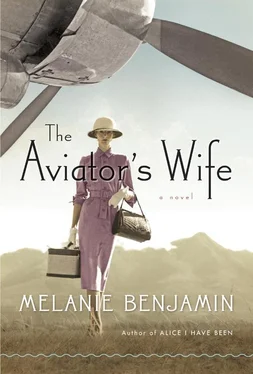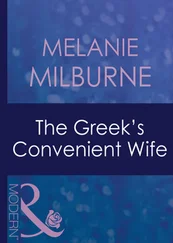So bitter was the constant taste of failure in my mouth, so narrow my vision, I fled. To a place that had always restored me to my best self.
I fled to Florida, to Captiva Island; a healing, nourishing wilderness that Charles and I had discovered before the war, when our friend Jim Newton urged us to come explore this untouched island off the Gulf Coast of Florida. I’d gone there several times since, sometimes with Charles, sometimes with my sister Con.
Now I went there alone. I had to find my own courage, and stop borrowing his. I had to find my own voice, and stop echoing his. I had to find my own story. And tell it. And if I failed doing so, I still would be stronger for the attempt than if I continued to sit beside Charles on the dais.
I packed my bags, bought paper and pencils, kissed the children, and let Charles drive me to the train station.
He sent me on my way with a handshake; the only sign of parting he could allow himself in public. But he told me, earnestly, that I was doing the right thing. He said it in the exact same way he had once told me that I could learn to fly a plane, master Morse code, figure out the stars.
And some of my jealousy melted away right then, because I knew he meant it. He had always been certain I could do more than I thought I could do. He had always pushed me to try, even if sometimes he confused bullying with encouragement.
I thanked him, then boarded the train with a jaunty wave. I was off to Florida, to a ramshackle beach cottage. I did not know when I would return. I only knew that somehow, for both our sakes, for the sake of our children, as well—
I needed to return with my own story to tell.
CHAPTER 17

ONE DAY, WHEN SHE WAS ABOUT TEN, Ansy came into the kitchen with an envelope in her hand.
It was one of those days when every appliance in the house decided to go on strike—the sink was backed up (again); the washing machine wasn’t draining right; the toaster was mysteriously burning one side of the toast and leaving the other limp and white. Even one of the clocks was acting up, the chime suddenly tinny and flat.
So I was bustling about, calling repairmen, mopping up suds and water, and stopping in front of the clock every fifteen minutes, as if I could fix it with the power of my gaze. I was wearing a housedress, an apron, bobby socks, and saddle shoes. I hadn’t had time to go to the hairdresser in weeks. I had taken to simply shampooing my hair and gathering it in a net, so that I resembled a truck stop waitress.
“Mother, is this you?” Ansy asked, thrusting the envelope out to me. On the outside was written Anne Lindbergh .
“Of course it is,” I answered, irritated. “You’re a big girl. You can read.”
“So this is yours, too?” She pulled out a small yellowing card and began to read. “This certifies that Anne Lindbergh has successfully completed all tasks necessary to pilot an aircraft for personal use.”
“Where did you find that?” I put down the bucket I was carrying, heavy with sopping wet towels. I reached for the card, and saw that it was my pilot’s license. “I thought your father had put it away somewhere.”
“Oh, he did,” Ansy answered brightly. “In a file cabinet.”
“You know you’re not to look through his things. Anne, if he found out he’d—”
“Don’t worry. I’m very careful not to leave any evidence behind, like fingerprints. See?” She held up her hands; she wore white cotton gloves, usually reserved for church.
I had to smile; my golden-braided daughter—the spitting image of Heidi—was going through a Nancy Drew phase. “Oh, I see. Well, please put it back and don’t go through his things again. Please. You know how he is.”
“I know. But, Mother, really, this is you?” And she laughed.
“Yes, really, it is. Why are you laughing?”
“Well, because—I mean, really! You, a pilot, just like Father?”
“No, not just like Father, because he’s—well, he’s Father. But after we were married, yes, I learned to fly. Oh, you know all that—the trips we made to the Orient, and so on!”
“No. No, Mother, I don’t.” Ansy’s eyes grew wide, and she stopped laughing. “You never told me.”
“Well, you probably learned about them at school, anyway—didn’t you? When you learned about Father?”
“No, the books only talk about him.”
“Well, I was a pilot, too, and we made some very important flights together. I also happened to be the first licensed female glider pilot in the United States.” I pursed my mouth in that prickly way I had; not sure with whom I was angrier, the historians—or myself, for never sharing this part of me with my children.
“It’s just so strange, to think of you like that,” Ansy continued, laughing merrily. “I mean—look at you! You’re, well—you’re Mother. Father’s the pilot, the hero. You take care of us, and the house, but to think of you up in the air, in your own little airplane!”
“I had one—my own little airplane. A little Curtiss. Your father bought it for me, although mostly we flew together in his plane, which was bigger. Mine was just a one-seater. We left it here when we moved to Europe.” I sat down on the metal kitchen chair, remembering. “Out at the Guggenheims’. I suppose it’s still there. When we moved back, somehow, I just never used it. I had the boys then, and soon you came along. And then the war, and Scott, and Reeve, and—well.”
“When’s the last time you flew like that?” Ansy sat upon the floor, cross-legged, in that fluid, boneless way of the young, and looked up to me.
“I don’t recall. I really don’t. Your father rarely flies like that anymore, either—it’s all commercial airliners now, for the most part. Although I suppose he does some, for the Air Force, for testing, and you know—sometimes he takes you children up. But it’s not like it used to be, back then, when we were the first. We flew all over the country, mapping out the routes that the commercial airliners all take. And we thought nothing of jumping into our plane to fly down to Washington, or up to New England—the way people jump into their cars today. It was what we did. We flew.”
“Yes, but I mean—when did you last fly, alone?”
“Oh, goodness. I don’t know—probably sometime in England, I suppose. I think I did fly solo, once or twice, while we were there. England is beautiful from the air.” I remembered how green, mossy green and rolling, the land was; how sweet the neat little cottages were, the astonishing length of the hedgerows, seeming to cover the entire island in an orderly, if slightly serpentine, pattern.
“Do you think you could do it today? Do you think you’d remember?”
“I don’t know. I suppose it would depend on the plane.” Could I? I shut my eyes, remembering the preflight checklist, recalling the pull of the stick against my hand as I eased the plane gently into the air; the little Curtiss was very sensitive, I remembered. Not like the big plane, the Sirius. It had been an instinct, at one time—the ability to feel the craft, understand its tendency to bank right or left, to know how to navigate the currents.
These days, my instincts were centered around whether or not we had enough milk to last the week; how to light the pilot light beneath the boiler in the basement without risking an explosion; prioritizing the various broken hearts and wild crushes inevitable in a house full of teenagers.
“I doubt it,” I admitted to my daughter, still seated, uncharacteristically eager to listen to me. Of all my children, my namesake was the one who knew, unerringly, which of my buttons to push. “And with the new radar—we didn’t have that, you see, when I was flying. Nor control towers. And of course, there weren’t all these planes in the sky, these big passenger planes. It was a simpler time.”
Читать дальше













